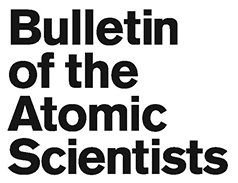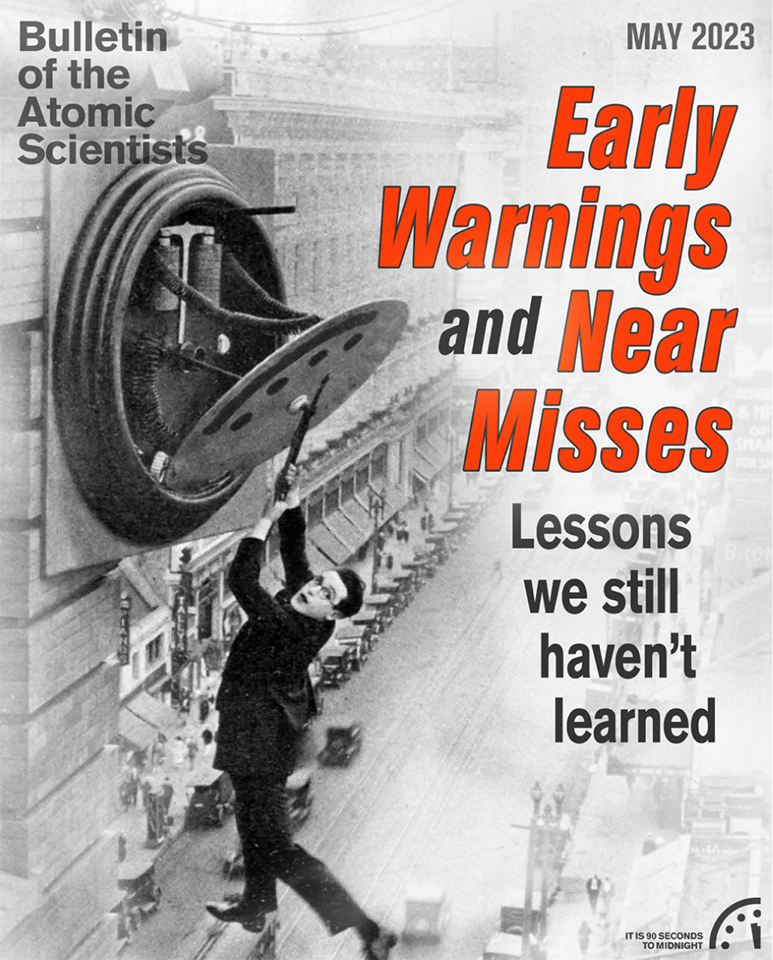
Bulletin of the Atomic Scientists May 2023
Posted: 10th May 2023
DAN DROLLETTE JR.
Introduction: Near-misses, close calls, and early warning
Unexploded nuclear bombs still lie off American coasts, embedded in swamps, or down on the seabed. But the world’s close calls are not limited to nuclear weapons. Our May premium magazine issue is devoted to near-misses, close calls, and early warnings, focusing on the lessons humanity can learn from these narrow escapes. Read with complimentary access in the premium magazine.
DAN DROLLETTE JR.
Interview with Susan Solomon: The healing of the ozone hole
Perhaps the best example of successfully managing a climate change “near-miss” is the 1989 Montreal Protocol that banned chlorofluorocarbons—which demonstrates the power of science and international cooperation to resolve a common environmental problem. Subscribe to read more.
DAN DROLLETTE JR.
Interview with Eric Schlosser: Why we can’t trust the figures about nuclear close calls
The Pentagon’s list of accidents with US nuclear weapons, or “Broken Arrows,” includes inaccuracies and is missing key events. Due to the looseness with which a Broken Arrow is defined, there may be hundreds more accidents. Read with complimentary access in the premium magazine.

Subscribe now to read the full issue
For less than $5 a month you can read the complete May magazine and access the full Bulletin archive, containing every article published since 1945.
Unlock all of our premium content today.
KJØLV EGELAND AND THOMAS FRAISE
Able Archer: How close of a call was it?
Able Archer 83, a NATO nuclear exercise conducted in the fall of 1983, has been the subject of considerable debate in recent decades. While some analysts have argued that the superpowers came close to blows, revisionists have maintained that the danger associated with Able Archer 83 has been seriously overstated. Subscribe to read more.
YOICHI FUNABASHI AND MARINA FUJITA DICKSON
Fukushima: Lessons learned from a devastating “near-miss”
Following the 2011 Fukushima disaster, Japan established a new nuclear regulatory commission and implemented new regulatory mechanisms. Twelve years later, where do things stand? Subscribe to read more.
MAYA WANG, FREDERIKE KALTHEUNER, AND AMANDA KLASING
The future of technology: Lessons from China—and the US
The technological competition between the US and China has been portrayed as a simplistic battle between democracy and authoritarianism. The reality is that people everywhere—including in both countries—are all living in a digital world, where surveillance is ubiquitous and accountability for human rights abuses more challenging. Subscribe to read more.
Your ongoing support ensures we stay on mission and get the job done.
Thank you!


